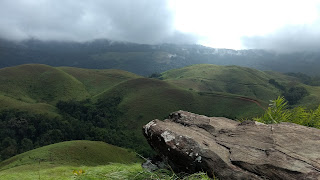Tourism - An overview
The Growth of Ecotourism
Ecotourism as we know it now grew mostly out of a desire to travel without causing harm to the environment. The decades after the Second World War witnessed an explosive growth of travel options for the common man. With ease of travel and means of access available to make this travel possible, we started seeing the world in fresh light. It was the third great era of discovery and virtually the entire planet became one huge tourism destination. The Americas, Europe and Oceania emerged as popular destinations for globetrotting and people took travelling seriously. However, over exposure of these places meant that new places had to be discovered and the process of unearthing sites continued. This mass exposure meant that no place could remain out of bounds.
Eco Consciousness
While this travel brought large scale benefits to the people, with tourism being the source of one of the largest ever transfer of wealth from rich to the poorer countries, it brought about issues of over exposure and the associated ill effects of mass tourism. A large number of people wanted to break free from this clutch of mass tourism where the packages offered would be one size fit all and you may end up seeing your neighbor sitting next to you, wherever you went, be it the neighbourhood grocery shop at Bristol or the Natural History Museum at Beijing.
Man has become more conscious of his environment than what he was a few decades ago. He saw images of degradation around him and began questioning the validity of large dams, deforestation and a multitude of artificial alterations being made to the landscape. The view that the present form of tourism alienates the local by making him merely a service provider rather than a partner in tourism, also took roots. Perhaps, a plethora of these reasons were instrumental in bringing about a gradual but definite change in the minds of the people and travel became more ecologically conscious. From the depths of this emerging consciousness grew a multitude of ways of travel.
Hector Ceballos Lascurian coined the term ecotourism in early 1980’s. He defined it as “environmentally responsible travel and visitation to relatively undisturbed natural areas, in order to enjoy and appreciate nature that promotes conservation, low visitor negative impact and provides for beneficially active socio-economic involvement of local populations”. Being environmentally responsible is essential as it stresses on ecological protection, while the emphasis on promotion of local livelihoods is a key factor for a successful ecological tourism initiative.
Setting Standards
The growth of ecotourism has not been smooth. The word ecotourism itself has been the focus of diverse interpretations and definitions. Ecotourism being a growing industry, new benchmarks have to be set and growing challenges to be met each passing day.
The word ‘eco’ has encountered many problems in the past and continues to do so today as well. Critics have pointed out that in being eco, we tend to damage the very place that we seek to visit and bring about negative influences to the people who live in these areas. Contrasting ideas keep brewing up, thus making the coming few decades even more exciting for ecotourism to begin fulfilling all the promises made and do so in a conscious manner.
The dilemma for us is to reconcile the principles of ecotourism while being flexible enough to appreciate the fact that standards on ecotourism continues to develop. Mere adherence to established norms discourages many to take the step from being a tourist to an ecotourist or being a conventional set up to an eco-oriented one. The challenge is to be more innovative in approach.
Whatever the pros and cons of the ecotourism movement, the ideologies prevailing in the past three decades have helped bring in an era of environment friendly tourism. Even large scale mass tourism sites are more conscious now than in the past. Examples such as the Nilgiris being declared as a plastic free district and Goa emerging as a favored destination for the environmentally conscious and not just the utopia of the budget happy are such changes that have crept into the mass tourism movement.
In future, mainstream tourism and ecotourism should aim to protect the quality of the environment, enhance the cultural ethos of the region, ensure better livelihoods for the community and promote harmony while being ecologically sustainable. Acceptance of tourism as a social contributor and an agent of conservation is a vital step to design future tourism policy. The coming decades will be a test to develop tourism on these principles while ensuring that the ethos set are not diluted.




Comments